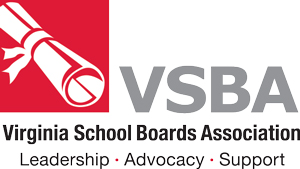From the Executive Director

10 Tips for New School Board Members
The VSBA would like to take this time to welcome all new school board members and welcome back those incumbents who won their elections. Below are 10 tips for New School Board Members based on the advice of seasoned board members who’ve learned through experience the pitfalls of being new on the board. Don’t forget that your association, VSBA, is here for you, so please don’t hesitate to call us at 1-800-446-8722.
- Assume your position with an open mind. Go slow initially, especially if you have come to the board with changes in mind. Chances are you will feel differently about many things in six months.
- Remember that the only authority you have lies in the corporate action of the school board. You have no legal authority to act alone unless the board explicitly delegates a task to you.
- Do not let your differences of opinion deteriorate into personality conflicts. The board sets the tone for the entire school system. Staff, students, parents, and the community observe how the board functions. Effective boards establish a model of collegiality and collaboration that builds confidence in your community that everyone is working to do what’s best for students.
- Give the superintendent and staff your public support. Use one-on-one meetings with the superintendent to iron out differences of opinion or to ask clarifying questions ahead of the school board vote.
- Keep out of teacher/personnel problems. The board hired a superintendent to take on that responsibility.
- Make every effort to be an informed board member. School business is always an important business. To be informed requires time and effort. Ask questions of your superintendent as you feel the need.
- As a board member, you should be accessible to your constituents to listen to their concerns. Listen carefully, then refer them to the appropriate person according to board norms and protocols. Remember that you may be hearing only one side of the story. Do not make any promises to fix a concern. Allow the process you have established as a board governance team to work.
- Accept your job on the board as one of responsible leadership in the community. Do your homework, come prepared to work, and remember that sometimes the work is to listen. Your role on the board is to interpret school affairs to an interested public. Expect to occasionally be in the minority on board decisions and accept the majority decision graciously. The time to voice your opinions about issues is before the vote is taken. Use your position on the board to help form public opinion and create active, intelligent support for education in your community. You were elected as an individual, but you’ll work as part of a board governance team. The best way to succeed as a board member is to practice collaboration and respect.
- Commit to your own professional development and learning. Take time to listen, learn, and build your understanding as you begin to share your ideas. Attend trainings, VSBA meetings, read books and periodicals to learn about the complex legal and educational issues facing your school division. Realize that you don’t know everything and capitalize on every opportunity to learn.
- As a board member, remember to keep students at the heart of every decision you make. Always keep their best interest in mind. Remain focused on students and their achievements, and stay connected with your community, schools, teachers, and students.
Thank you for all you do. We look forward to seeing you soon.
GP
